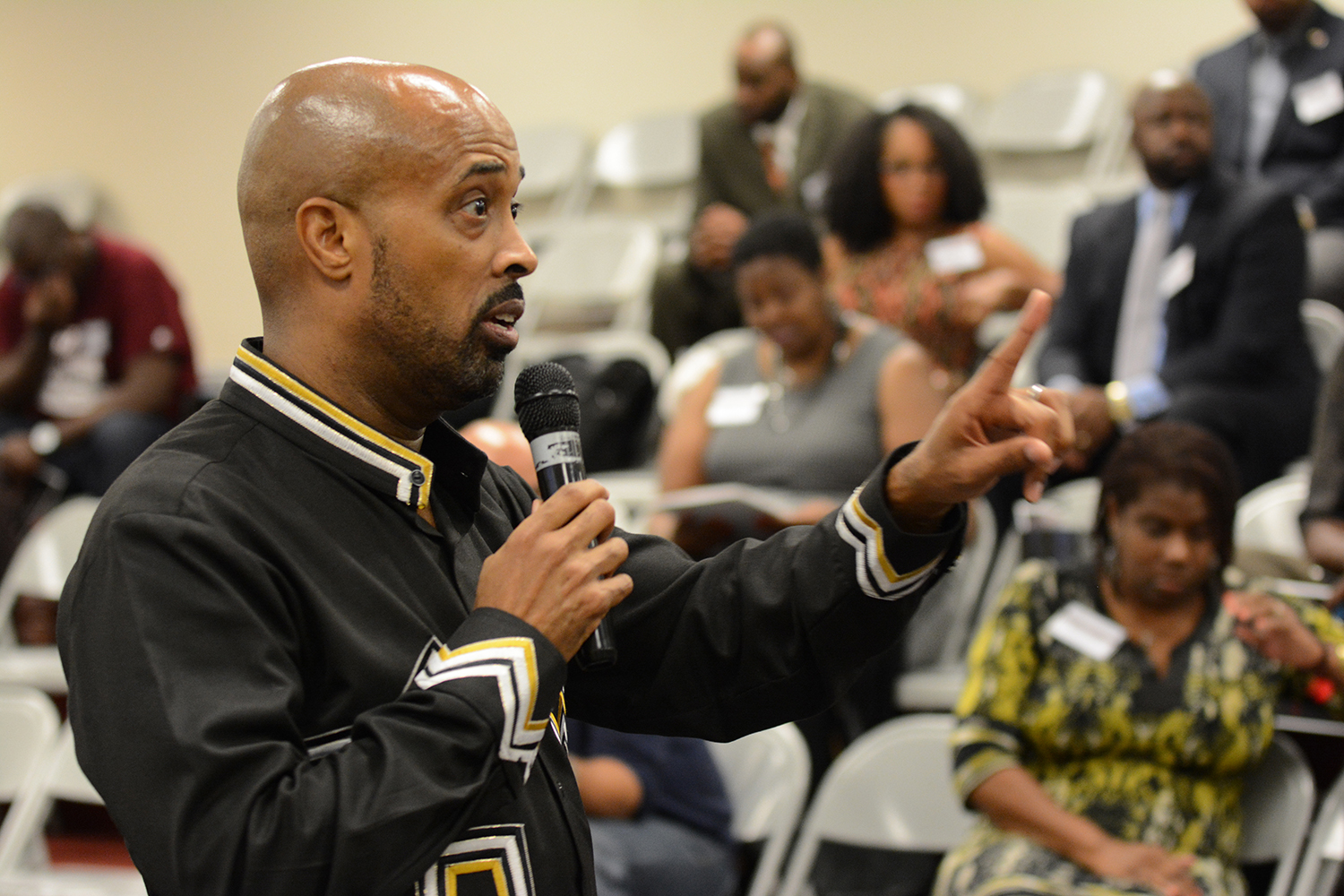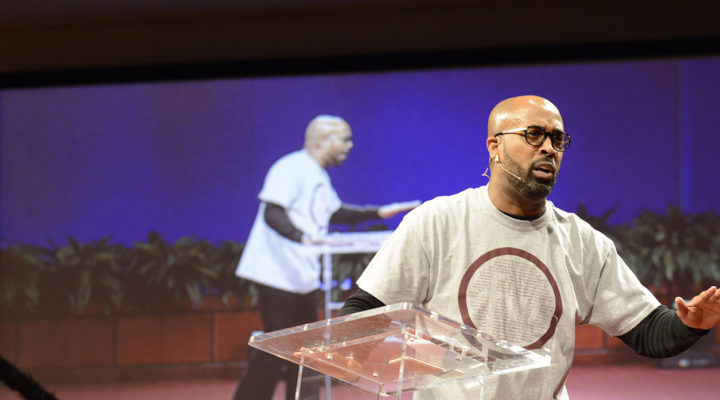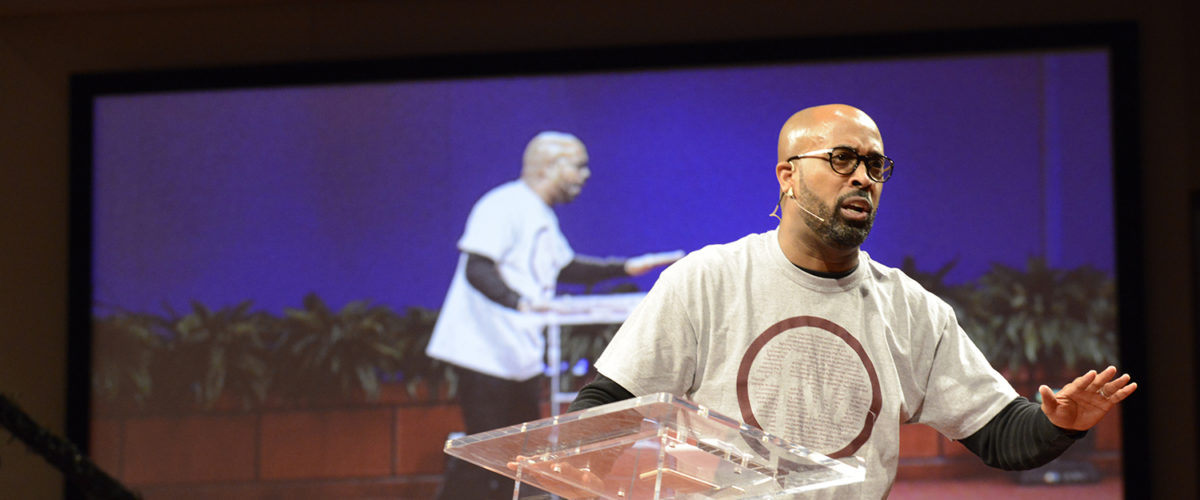When Texas pastor Freddy Haynes joined other ministers over the summer calling for a boycott of the NFL, it was to protest the league’s treatment of embattled quarterback Colin Kaepernick.
But Donald Trump has pushed the debate, and the proposed boycott, to whole new levels.
“What the president did was basically to stir the pot and heightened the energy,” said Haynes, senior pastor at Friendship-West Baptist Church in Dallas.
Kaepernick was a San Francisco 49ers quarterback in 2016 when he knelt during a pregame national anthem. It was to draw attention to issues of police brutality and social injustices faced by blacks and other minorities. He hasn’t landed a roster spot since.
The president recently got involved by criticizing the growing number of players who have since emulated Kaepernick’s anthem protests. He blasted NFL owners for not squelching the protests and called participating players SOBs.
Haynes said he’s a lifelong Dallas Cowboys fan but will continue to preach the boycott and the issues Kaepernick has raised from the pulpit and on social media even in the hyped-up, ugly atmosphere.
My concern is that the response to the president will blind people to the real issues that Colin Kaepernick was pointing and continues to point to.
“Some have said some pretty vile and nasty things about me because of this stance,” he said.
Even Dallas owner Jerry Jones’ gesture of kneeling and locking arms with players — before the national anthem — did not change his mind.
Haynes spoke with Baptist News Global about the ministers’ NFL boycott, Trump’s statements and how these intersect his own ministry.
You joined the NFL boycott in the summer. Does it feel prophetic now?
On one level, there are possibilities the country is waking up to the real issues Colin Kaepernick and a number of us have been raising about the criminality of our justice system, police misconduct and abuse.
My concern is that the response to the president will blind people to the real issues that Colin Kaepernick was pointing and continues to point to. I kind of have mixed emotions. I am hopeful. We have an opportunity if we take it as a teaching moment on the real issues or, if we are not careful, it will become an emotional reaction to what the president has done and is doing. And I think that would be taking a wrong turn following a red herring.
Why add your voice to those calling for a boycott in the first place?
The main thing I could not believe that with the quarterback rating of Colin Kaepernick he was not going to be playing football this year — even though he said he would not continue to kneel. Yet, teams have knowingly welcomed to their rosters persons with domestic violence, sexual assault issue. Colin Kaepernick does not that have kind of criminality in his background — but he can’t get a job. It hit me that he was being white balled — some say blackballed. For me, the issue has everything to do with standing up against racial injustice. If the NFL will do that for someone who is against racial injustice, then I have to take a stand against the NFL. They are not sensitive to issues faced by almost 70 percent of their players.

Freddy Haynes, the senior pastor at Friendship-West Baptist Church in Dallas, says a boycott of the NFL is warranted given the unfair treatment of quarterback Colin Kaepernick. (Photo/Courtesy of Friendship-West Baptist Church)
Has the president’s comments strengthened your conviction on the issue?
He reinforces why we need to participate in this boycott, or what some are calling this blackout. For him to say what he said in Alabama, it was almost a dog whistle. In fact, it was a dog whistle when he said [the protests] are violating our heritage. This in a state … with a vicious history of racism. In no way do I believe that that was accidental. I think he was dog whistling to a base that has racist tendencies. It reinforced for me that this nation needs Colin Kaepernick and others to take a stand because racial injustice is till part of the structure of the United States.
Your thoughts on Jerry Jones’ approach to this issue?
He not making it better or worse. Dr. [Martin Luther] King said the measure of a person is where you stand in difficulty. He chose to along with Cowboys to stand in the middle. There was no real stance that was taken as far as I concerned. He took a knee, then stood. OK, so where do you stand? They found a place of neutrality. I’m just not impressed.
Have you been in touch with him or Cowboys?
No, I have not but I’ve been very public about this. … I was not watching the game on Monday and my phone is blowing up and social media is blowing up saying I made Jerry Jones take a knee. That’s just not how it happened.
How does the boycott look for you?
There is a prophetic responsibility, especially from the eighth-century prophets. They spoke truth to power and called for justice and gave voice to voiceless, oppressed and impoverished…Any prophetic ministry must stand up.
One, I am not doing anything that will enhance the rating or the money for the NFL. For years I have worn NFL paraphernalia, don’t do that anymore. I don’t watch the games. I will not participate in fantasy football. And now I am even looking at those companies and corporations that advertise with the NFL and looking at whether I will … be supporting those.
The second piece is that I’m using the time where I would normally watch the games to have conversations about racial justice with young people I’m mentoring…We even have a book club. We are reading Michelle Alexander’s The New Jim Crow, and Choke Hold [by Paul Butler]. The book club discussions focus on these topics so that it’s a constructive time and not just a time when we are turning the TV off.
Will you continue to preach about these issues, and the boycott?
Yes. This Sunday I’m starting a series on prayer. Paul in Ephesians chapter 3 — he was kneeling and praying. This is part of the prison epistles. And Daniel took a knee in chapter 6. That’s what I’m doing in both services — looking at what it means to take a knee.
What kind of reaction have you had to your stance on the NFL boycott?
A lot of positive feedback from a number of persons. Some have surprised me because I know they are avid football fans, yet they have said thank you very much. On social media, they said I had opened their eyes to the realities of what’s going on and how Colin Kaepernick was not offending or attacking the military — he was not attacking the flag. Instead he was pointing to something else: if we are living out the meaning of the flag and justice for all, then we should all be on our knees with him. I’ve had quite a few say I’m not giving up my football and you can’t tell me how to spend my time. Even one a dear sister in faith … said one of my lines — I enjoy football but I love justice — had convicted her.
Why do you feel it’s your responsibility to be involved in an issue dealing with professional football?
There is a prophetic responsibility, especially from the eighth-century prophets. They spoke truth to power and called for justice and gave voice to voiceless, oppressed and impoverished. … Any prophetic ministry must stand up. I believe Colin Kaepernick has been more prophetic than many of my colleagues. He and other players … have taken up the prophetic mantel without even having the call.


